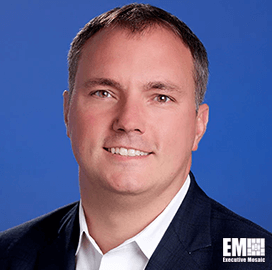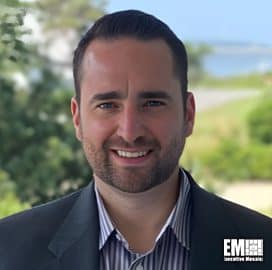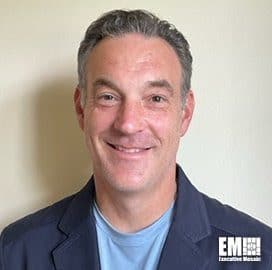
Travis Rosiek
Public Sector CTO
Rubrik
Member Profile: Travis Rosiek, Public Sector CTO at Rubrik
Travis Rosiek currently serves as public sector chief technology officer at Rubrik. Guided by his strong commitment to supporting the U.S. government, Rosiek is working to expand the zero trust-focused federal business to bring modern technologies to government organizations.
Rosiek recently participated in an interview with the Potomac Officers Club, in which he discussed the ways his background influenced his path, his approach to driving change in the federal landscape and his career inspirations.
Read the full interview below:
When did you decide to pursue a career in the federal landscape and what were the key tasks that you wanted to complete? Any bigger goals for you?
As a child, I was passionate about becoming a fighter pilot or pursuing a career in computers. When I realized that my eyes would prevent me from achieving my dream of being a fighter pilot, I then followed my interest in computers. A few years into college, I became one of the first recipients of the Department of Defense’s Information Scholarship Program, which gave me a path to serve my country and help the department address the new threats in the cyber domain.
My goal has always been to have the biggest impact possible and looking back, I strongly feel that I have had a far-reaching impact in the path that I was fortunate enough to take. My bigger goals are to help break down some of the barriers that exist in government and compliance as well as other non-technical barriers to help accelerate the adoption, transformation and operationalization of game-changing technologies that will help the U.S. maintain our edge long-term.
What can you tell us about your background and how you’ve been able to adapt to the ever-changing challenges of the federal landscape over the course of your career?
With a long family history rooted in military service, I grew up listening to stories across many wars and multiple service branches, which gave me a strong understanding of the challenges and sacrifices that our military service men and women endure. Those stories coupled with my knack for solving problems and the “be prepared” mindset I developed while becoming an Eagle Scout were strong influences throughout my career and the reasons why I felt a desire to serve my country.
While in undergrad, West Virginia University was one of the first 10 schools to be designated by the National Security Agency as a Center of Academic Excellence in Information Assurance, and as a result, I was able to apply for the DOD IA Scholarship Program. On September 10, 2001, I received a scholarship letter from Michael Jacobs, the NSA Information Assurance Director at that time. The attacks and tragedies that occurred the following day gave me a stronger desire to serve and make an impact protecting our country.
The Boy Scout motto, “be prepared,” instilled a proactive drive in me to anticipate threats, develop and deploy innovative technologies and stay ahead of cyber threat actors throughout my government and commercial career in building DOD networks, programs and products that solve future problems under worst case scenarios. Being proactive in cybersecurity has been my driving force and I have been patiently trying to create change in the culture that is far too reactive to threats. This proactive mindset has fueled my desire to find innovative technologies and find ways to get them into the hands of cyber defenders. One of my goals is to hopefully make this process easier for innovators and government customers in the future so they can adapt, innovate and evolve rapidly because cyber threats are incredibly adaptive and cunning.
Who are the executives that have inspired you the most over the course of your career?
I am blessed to say there are probably too many, so I may have left out some individuals unintentionally. I was recruited to serve as a DOD civilian via the DOD IASP during its first year being run by the NSA. Being in the first class made the program more of a partnership in that my success and impact as a recipient meant that the program could grow and many more could have the same opportunity that I was lucky to have. I set out to have the biggest impact that I could, and my focus was to learn from as many successful mentors and leaders as possible.
In no particular order, I am very fortunate to have learned from and been inspired by William Keely, Richard Hale, Robert Lentz, Brian Shuhart, Mark Orndorff, Dave Mihelcic, Charlie Croom, Henry Sienkiewicz, Tony Sager, Curt Dukes, Sherri Ramsay, John Hickey, Joseph Brendler, John Coller, Mike Thomas, Chris Paczkowski, Earl Mathews, Dan Wolf, David Simpson, Betsy Hight, John Coller, Bruce Morgan, Bob Stephenson, Gil Griffin, Larry Huffman, John Grimes, Harry Raduege and many others.

Category: Executive Profiles




